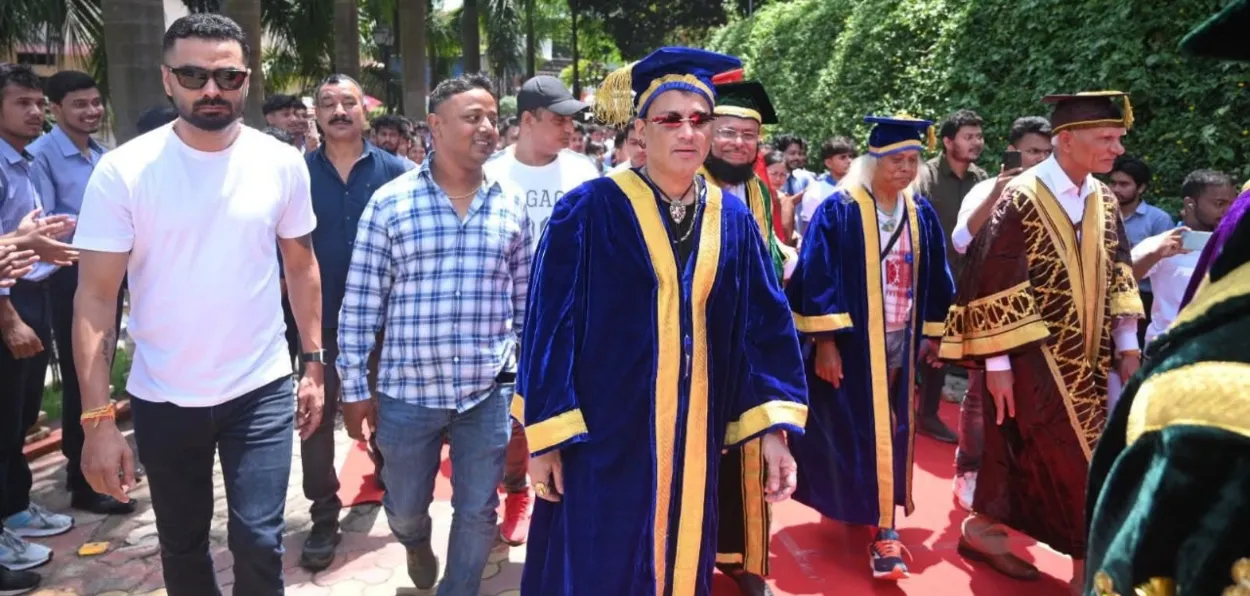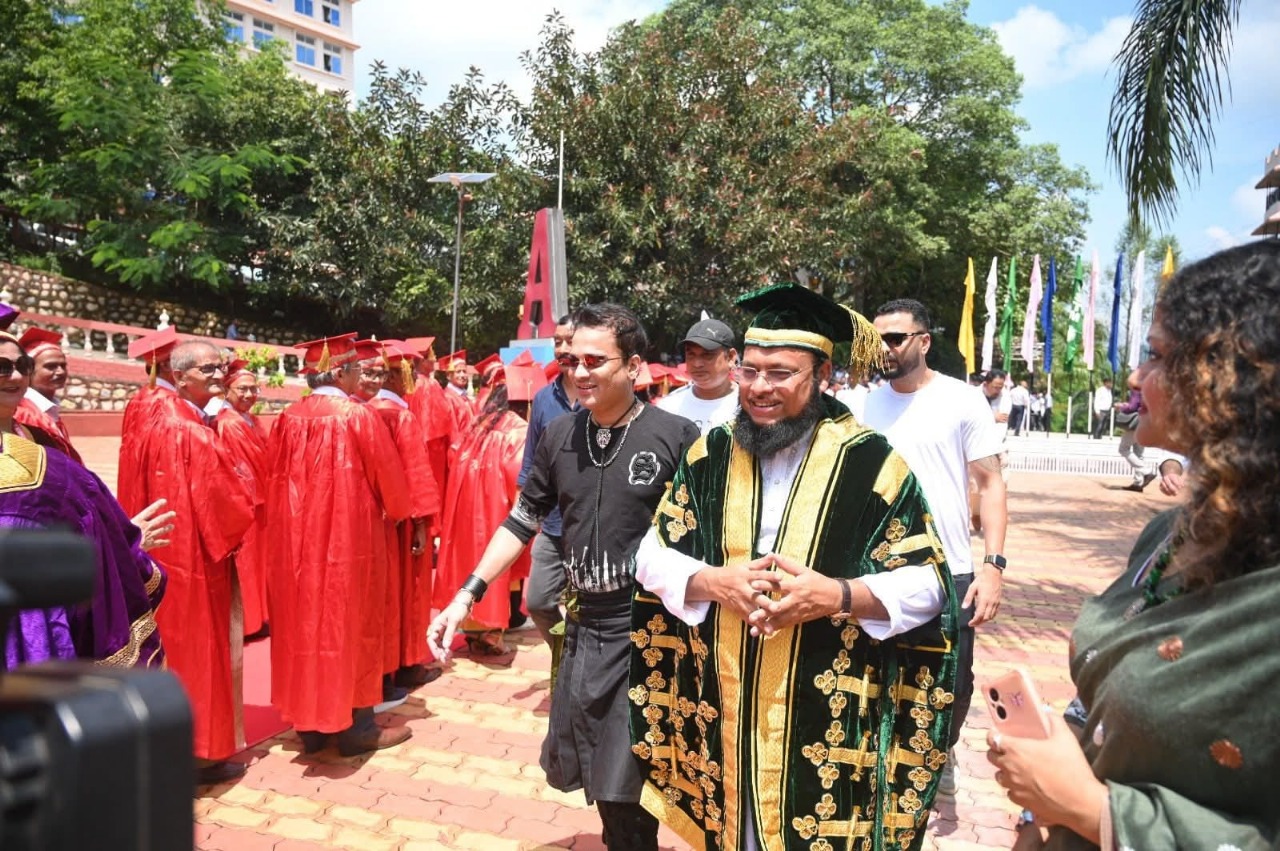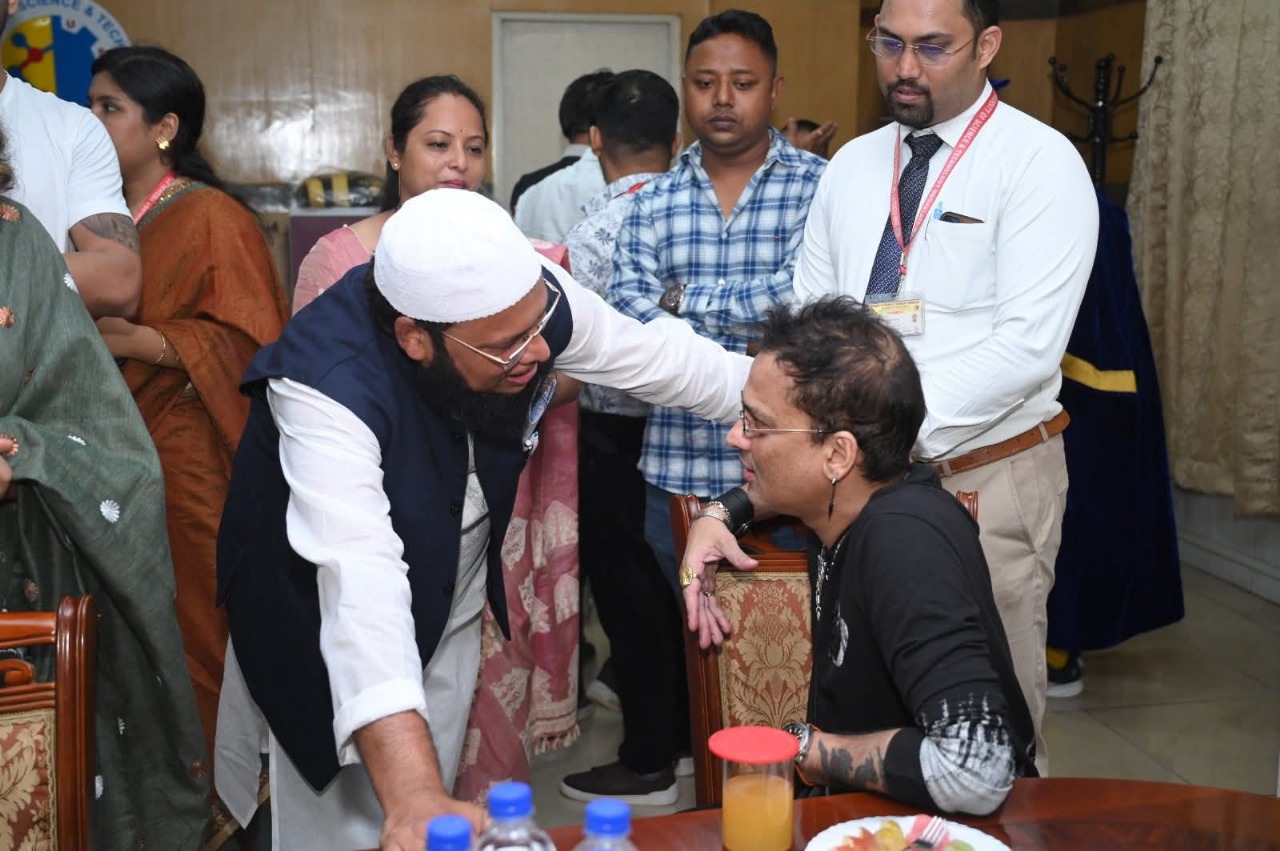
Mahbubul Hoque
‘Zubeenism’ – a term that emerged from the phenomenon of infinite love people showered on Assam’s heartthrob Zubeen Garg after his untimely death - can be defined as a sensation of cultural identity, emotional expression, and social consciousness inspired by life, music, and the ideology of the legendary artist.
It is believed that divine intervention occurs when a state of imbalance exists, with evil overpowering good. It promises that even in the darkest times, a divine power will come to restore order. The last decade of the twentieth century (1990s) was a period of socio-political unrest, identity crisis, and cultural transition in the state of Assam. The state was emerging from years of insurgency, economic uncertainty, and the after-effects of the Assam Movement. Zubeen Garg chose music and culture to connect people with a purpose. He sang ‘Klaanto jeevan aji, klaanto dithok aji, dusokut vaahe maathu; xantir xubhra rath, mukutir xuddha path’ Meaning: Today, life feels exhausted, the eyes are weary too. In my vision floats only the pure chariot of peace, the sacred path of liberation.
His songs — blending modern musical styles with Assamese folk and cultural essence — resonated deeply with the younger generation. Through his music, Zubeen helped revitalise Assamese popular culture, bridging the gap between traditional and contemporary sounds. His popularity also contributed to restoring pride and unity among Assamese people, reaffirming cultural identity amidst social and political uncertainties. He became not just a musician but a voice of resilience, youth, and regional identity, marking his importance and relevance in the modern Assamese society.
What I call Zubeenism evolved through three stages: In the decade of the nineties which was a turbulent phase of Assam, the singer emerged as a powerful cultural icon, redefining the musical and emotional landscape of the state.
 Mahbubul Hoque, Chancelllor, and Zubeen Garg at the convocation of the USTM
Mahbubul Hoque, Chancelllor, and Zubeen Garg at the convocation of the USTMIn the next decade, Zubeen, with his talents in music and films, Zubeen represented cultural inclusiveness and connectivity of Assam and after that he emerged as a people’s voice against corruption and injustice, advocating social harmony and coexistence.
Zubeenism is enriched and popularised with his simplicity, compassion and humanity. It is a way of feeling, thinking, and belonging. We can assume Zubeenism as a way of harmonious life with cultural pride, compassion, conscience and coexistence.
Zubeen Garg could have been established in Mumbai for his divine talent and effort. But he came back to his motherland for love of his land and people. Zubeenism encourages preservation of local identity with openness to change. For him, art was not mere entertainment; it was a tool to awaken hearts and unite people.
Apart from music, he created a revolution in the Assamese cinema industry with Mission China. “Douri Douri jaam, Axomiya cinema saam”— his appeal denotes love and responsibility. “Kitap nopoha jatik gamochai bosabo nuare”, i.e., Gamocha can’t save a community without reading habit. He wanted to express that the true strength of a community lies not only in preserving its cultural symbols but also in nurturing an educated and enlightened generation.
His music, words, and actions reflected compassion, courage, and togetherness. Beyond being a singer, composer, or filmmaker, he was admired for his fearless voice, childlike honesty, simplicity, and love for people. Behind his flamboyant public persona was a man with a tender heart — someone who felt others’ pain deeply and helped quietly, without any publicity. During floods, he personally organised relief. He helped the poor & numerous patients in the treatment of diseases, including cancer. His compassion for philanthropic work was silent yet boundless and heart-touching.
“Mur kunu jaati naai, mur kunu dhormo naai, mur kunu bhogowan nai-- moi mukto, moi Kanchanchunga.” He said, “I have no caste, no religion, no God — I am free, I am Kanchenjunga.” Perhaps he might have said it out of deep frustration, seeing the divisiveness in society in the recent past. Zubeen rose above caste, religion, and sect.
 Mahbubul Hoque, Chancelllor, USTM speaking with Zubeen Garg
Mahbubul Hoque, Chancelllor, USTM speaking with Zubeen GargZubeen Garg showed that true religion lies not in rituals or dogmas but in kindness, compassion, and human connection. In a world increasingly divided by belief and identity, Zubeen’s life reminds us that love for humanity itself can be the greatest form of worship and faith, leading to universal peace and harmony.
Thus, ‘Zubeenism’ can refer to the cultural and emotional phenomenon that emerged in Assam around the artistic persona and influence of Zubeen Garg. I wish to say that one person can be called a follower of Zubeenism if he works selflessly for the welfare of the people with cultural pride, care, spreading the message of brotherhood, keeping them united for a harmonious society and standing up firmly to raise a voice for the unprivileged and the needy.
As expressed in his song ‘Jogot puhor kori’, we can opt for a flood of light, removing darkness and evils from the world to establish a peaceful and progressive society through Zubeenism. As he expressed in this song, Jogot puhor kori ahibo plaban..( A flood of light will rise upon the world, driving away the darkness, defeating the evil Ravana. The society will be cleansed. This sin will come to an end, the lotus of love will bloom forever. A new history shall be written again.
ALSO READ: Begum Akhtara Ahmed is first Muslim woman elected to Bodoland Council
Let us inculcate the core values of Zubeenism in our day-to-day life by institutionalising it in various academic platforms. It’s a moral duty and responsibility of stakeholders, including the academic fraternity, to protect, preserve and propagate the life and legacy of Zubeen Garg, to witness a harmonious and peaceful society with humanism and coexistence.
The author is the founder and Chancellor, USTM
